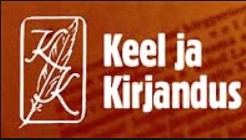Liiklemine keeles ja ruumis - Sõna liiklema kasutus
The word liiklemine `traffic´ in Estonian language space
Author(s): Tauri TuvikeneSubject(s): Semantics, Comparative Linguistics, Sociolinguistics, Finno-Ugrian studies, Rural and urban sociology
Published by: SA Kultuurileht
Keywords: traffic; pedestrian; walking; mobility; flaneur;
Summary/Abstract: Embarking from the “mobilities turn” in social sciences and humanities, this article attends to the movement in urban space from the perspective of language. This is done by an analysis of one specific word in Estonian – liiklema directly translated as ‘to participate in traffic’ – its introduction and change of use. Liiklema is an invented term from the 1920s, brought to Estonian by recognized linguist Johannes Voldemar Veski, with an aim to find a word that would capture the meanings conveyed by communication in English or the German Verkehr. However, once the word liiklema entered use, it got a slightly different meaning than initially intended. While it is used in the meaning of air or maritime traffic, suggesting the initial meaning of liiklema (‘being connected’), when not used in conjunction with other words, it means being mobile and moving in street space, negotiating space and movement between different mobility devices: pedestrians (as well as various other vehicles and means of transportation) liiklevad (that is, they ‘do traffic’) and as a result there is liiklus (‘traffic’) in the streets. Then again, research literature inspired by the mobilities turn contains abundant critique towards pedestrians being likened to machines subservient to automobiles, which are the stronger party in street space. This perspective, critiqued by mobilities turn, as this article argues, is conveyed in Estonian by words such as liiklema or liikleja (‘road user’). As a human geographer wandering in language space without aiming at a linguistic approach, I discuss the meaning of words liiklema and liikleja and some different ways of participating in traffic by suggesting alternative terms that would better capture the substance of walking.
Journal: Keel ja Kirjandus
- Issue Year: LXIII/2020
- Issue No: 8-9
- Page Range: 691-703
- Page Count: 13
- Language: Estonian

